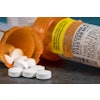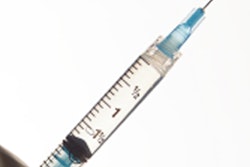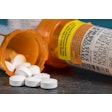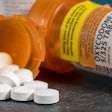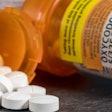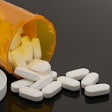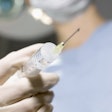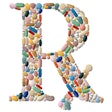
After third-molar extractions, patients and their parents overwhelmingly prefer nonopioid pain management, according to a study presented at the 2017 American College of Oral and Maxillofacial Surgeons annual meeting in Vancouver, British Columbia.
In a survey of more than 1,500 patients and their parents, almost 70% of those who had the third-molar extractions had been prescribed an opioid for postextraction pain management, and only 40% reported that their practitioner had discussed potential adverse effects with them.
"Clinicians can help address these concerns by offering effective nonopioid alternatives," noted researchers Suzanne McCormick, DDS, in private practice in Encinitas, CA, and Pedro Franco, DDS, of DFW Oral & Maxillofacial Surgery in Irving, TX.
Patient awareness
Opioids can be effective for postextraction pain management, but with the growing amount of published literature about the potential for these pharmaceuticals to be abused, there is a need to understand how aware patients are of these pharmaceuticals, their uses, and the potential for abuse.
The researchers conducted an online independent survey in the U.S. between June 23 and July 8, 2016. The survey participants were separated into two groups:
“Clinicians can help address these concerns by offering effective nonopioid alternatives.”
- Adults age 18 years and older who underwent third-molar extraction in the past 12 months
- Parents of patients ages 18 to 24 who had the surgery in the past 12 months or expected to have it in the next 12 months
The researchers screened more than 26,500 responses and identified more than 1,500 qualified respondents. These included 1,000 patients, 251 parents of patients who had the surgery, and 251 parents of patients who expected to have the surgery.
Among patients who had the surgery and their parents, almost 70% reported that the patient was prescribed an opioid. Only about 40% reported that their provider discussed potential adverse effects, and a majority (between 56% and 62%) would have liked more information on this topic. Almost half of the patients reported they were "worried" about that prescription.
When considering only those patients who took an opioid after third-molar extraction, the almost 90% reported adverse effects that impaired activities of daily living, including the following:
- Drowsiness was experienced by 60% to 61% of patients.
- Between 45% and 51% of patients felt "spaced out."
- Nausea and vomiting was experienced by 15% to 26% of patients.
- Confusion was reported by 14% to 23% of patients.
- Constipation was reported by 9% to 14% of patients.
- Other adverse effects were experienced by 1% to 2% of patients.
Among all survey respondents, almost 90% had heard or read about prescription drug or opioid abuse-related issues in the past year. And up to 98% perceived the opioid epidemic as somewhat serious or very serious in the U.S.
More than 70% of patients said they would opt for a nonopioid medication for postextraction pain, mostly to avoid adverse effects, risk of addiction, or exposure to opioids. Interestingly, about 75% responded that they would choose a nonhabit-forming medication even if it were associated with additional cost.
Full study to be presented in October
The results of the researchers' full study will be presented this fall at the 2017 American Association of Oral and Maxillofacial Surgeons annual meeting, but they noted that the results showed that the message about potential negative effects of opioid use was being received.
"Patients and parents recognize the potential for negative effects associated with opioid use," they concluded.
Study disclosures
The researchers reported that their research was funded by Pacira Pharmaceuticals. Pacira also is a sponsor of the Anesthesia & Pain Management Community on DrBicuspid.com, but the company had no involvement in the coverage of this study.


